Mortgage Scheme Guide
Shared Ownership Mortgages
A Shared Ownership mortgage is a type of mortgage that allows you to buy a share of a property (usually between 25% and 75%) and pay rent on the remaining share to a housing association or other designated provider. Shared ownership mortgages are designed to help first-time buyers and people with lower incomes to get onto the property ladder by making it more affordable to buy a home.
With a shared ownership mortgage, you would take out a mortgage to buy the share of the property that you can afford, and pay a subsidised rent on the remaining share. For example, if you buy a 50% share of a property worth £200,000, you would take out a mortgage for £100,000 and pay rent on the remaining £100,000 share.
You can usually increase your share of the property over time by buying additional shares, known as “staircasing”.
Right to Buy Mortgages
A Right to Buy mortgage is a type of mortgage that is designed specifically for council or housing association tenants who wish to purchase the home they are currently renting from their local authority or housing association.
Under the Right to Buy scheme, eligible tenants have the right to purchase their rented property at a discounted price, which is usually based on the length of time they have been a tenant. Right to Buy mortgages are specifically designed to help tenants access the funds they need to purchase their home through the scheme.
Right to Buy mortgages are similar to other types of mortgages, in that they are usually long-term loans that are secured against the property being purchased. The amount that can be borrowed through a Right to Buy mortgage will depend on a range of factors, such as the value of the property, the borrower’s income, and their credit history.
As with any mortgage, it’s important to carefully consider your options and seek professional advice before taking out a Right to Buy mortgage. This will help ensure that you choose the right mortgage product for your needs and circumstances, and that you are able to meet your mortgage repayments over the long term.
Shared ownership mortgages can be a good option for people who are struggling to save for a deposit, as the deposit required is typically lower than for a traditional mortgage. They can also offer more affordable monthly payments, as the rent paid on the remaining share is often lower than the equivalent mortgage payments.
It’s important to note that not all properties are eligible for shared ownership, and there may be restrictions on the percentage of the property you can buy and the housing associations or providers that are available in your area. It’s important to carefully consider your financial situation and the terms and conditions of the shared ownership scheme before deciding if it is right for you.
Help to Buy: Mortgage Guarantee Scheme
The UK government has extended the mortgage guarantee scheme until the end of December 2023. This scheme provides support for those who are looking to buy a home with a small deposit. The government guarantees a portion of the mortgage, making it possible for borrowers to secure a mortgage with as little as a 5% deposit on a property’s value. This scheme is intended to help first-time buyers and those who struggle to get a mortgage due to a lack of available funds for a large deposit.
The scheme has already helped over 24,000 households up to November 2022. The scheme has also supported the wider housing sector, which suffered during the COVID-19 pandemic. Lenders reduced the availability of high Loan-to-Value products during the pandemic, with just eight 95% LTV products available in January 2021. The government’s mortgage guarantee scheme has helped restore competition and consumer choice to the market, which has benefited businesses and boosted the market.
The mortgage guarantee scheme is available to anyone looking to purchase a residential property in the UK with a mortgage of up to £600,000. It is available for both new-build and existing properties and to both first-time buyers and home movers. The borrower must have a deposit of at least 5% of the property’s value, up to a maximum of 95%. They must pass affordability checks and satisfy the lender’s other lending criteria, such as credit history and income. The property must be the borrower’s primary residence and not a second home or buy-to-let property.
Despite the guarantee, borrowers will still be responsible for making mortgage payments and complying with the terms of the mortgage agreement. The scheme has helped many people get onto the property ladder who would otherwise struggle to do so due to a lack of available funds for a large deposit.
First Homes Scheme
The First Homes scheme is a new initiative launched by the UK government to provide discounted homes for first-time buyers and key workers. The scheme is aimed at helping those who would otherwise struggle to get on the property ladder due to high house prices.
Under the scheme, first-time buyers will be able to purchase homes at a discount of at least 30% off the market price. The discount will be funded by a combination of developer contributions and Section 106 agreements, which require developers to provide affordable housing as part of their planning permission.
The First Homes properties will be available to eligible buyers who meet certain criteria, such as being a first-time buyer, a key worker, or a member of the armed forces. The scheme is also open to local residents and those with a connection to the local area.
To be eligible for the scheme, buyers must have a household income of less than £80,000 per year (£90,000 in London) and must be able to raise a mortgage of at least 50% of the discounted purchase price. The maximum purchase price for a First Homes property is £250,000 (£420,000 in London).
Lifetime ISA
The Lifetime ISA (LISA) is a savings account designed to help people save for their first home or for later life. To open a LISA, you must be between 18 and 39 years old.
You can save up to £4,000 each tax year, and the government will add a 25% bonus to your savings, up to a maximum of £1,000 per year. This bonus is paid into your account at the end of each tax year.
You can use the money in your LISA to buy your first home, as long as the property costs £450,000 or less, and you are buying with a mortgage. You must have had the LISA open for at least 12 months before you can use it to buy a property.
If you’re buying with another first-time buyer who also has a LISA, you can both use your LISAs towards the same property, effectively doubling your bonus.
However, if you withdraw money from your LISA for any reason other than buying your first home or withdrawing after age 60, you will be charged a penalty of 25% on the amount withdrawn. This means you will get back less than you put in, including the government bonus.
Help to Buy: ISA
A Help to Buy ISA is a savings account for first-time buyers in the UK that offers a government bonus towards the purchase of a home. For every £200 saved, the government adds a £50 bonus, up to a maximum bonus of £3,000.
When it comes to getting a mortgage, having a Help to Buy ISA can be beneficial as it can be used as a deposit towards the purchase of a home. The bonus is only paid upon completion of the purchase, so it cannot be used for the initial deposit or exchange deposit. However, the money saved in a Help to Buy ISA can still be used towards the initial deposit.
The maximum purchase price for using a Help to Buy ISA to buy a property is £250,000 outside of London and £450,000 in London.
It’s worth noting that the Help to Buy ISA closed to new accounts on 30 November 2019. However, those who already have a Help to Buy ISA can continue to use it to save and claim the government bonus until November 2029.
The scheme is being rolled out gradually across the UK, with the first wave of properties launched in June 2021. The government has committed to building at least 1,500 First Homes properties by March 2022, with the aim of providing at least 10,000 homes per year in the future.
The First Homes scheme is intended to provide a long-term solution to the UK’s housing affordability crisis by making it easier for first-time buyers and key workers to get on the property ladder. By offering discounted homes, the scheme aims to create more sustainable and inclusive communities, with a mix of affordable and market-rate housing.

The Financial Conduct Authority does not regulate building surveyors.
Thameside Mortgage Ltd are not regulated by The Royal Institution of Chartered Surveyors, we do not have any involvement in the provision of this type of service / activity. We are not qualified surveyors and the information provided on this website is for informational purposes only. The information provided is not intended to be a substitute for professional advice, inspection, or survey.
It is important to seek professional advice and to undertake a proper survey/inspection before making decisions or taking actions related to a property.
What Our Clients Are Saying

